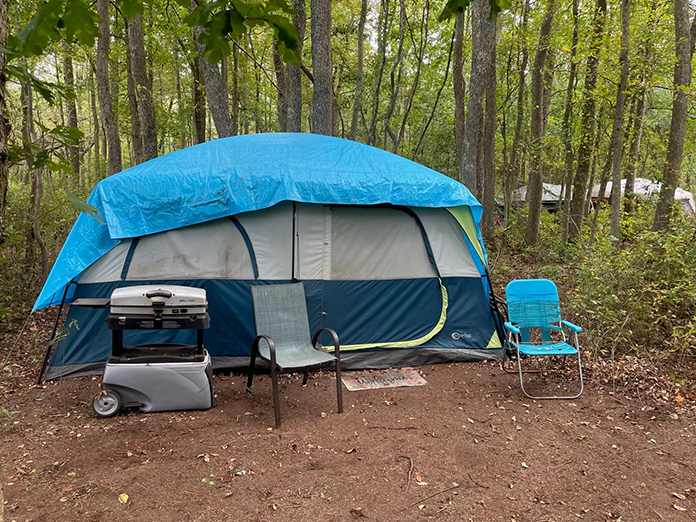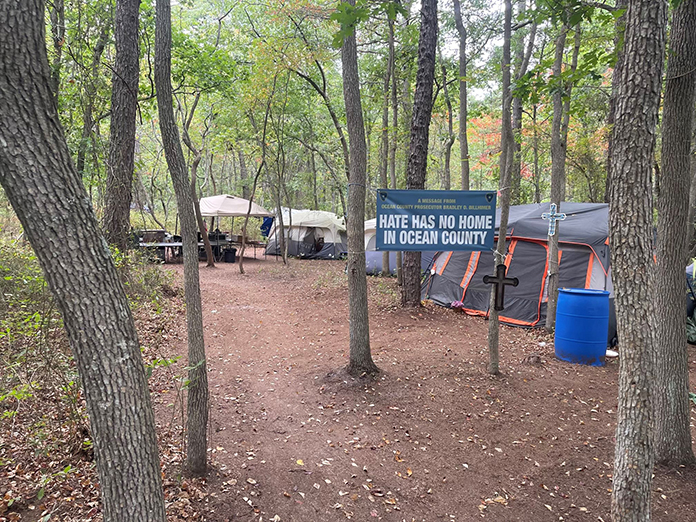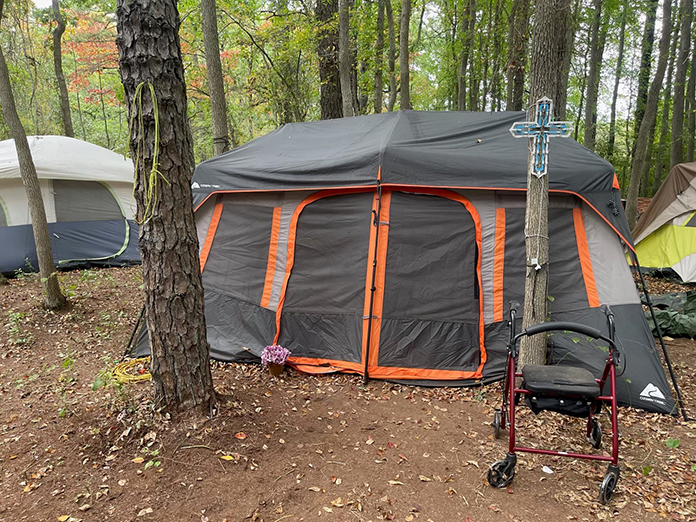
TOMS RIVER – A reliable source has revealed that efforts are underway to close the local encampment run by Reverend Steve Brigham of Destiny’s Bridge within the next 45 days. The camp, which has been a last refuge for dozens of homeless individuals, is set to be dismantled as township officials scramble to relocate its residents. The clock is ticking as non-profits and local authorities rush to find them temporary shelter, hoping to avoid an emergency situation.
Meeting minutes from a September 17 phone conference between township officials and non-profits, including Toms River Business Administrator Jon Salonis and Assistant Township Attorney Peter Pascarella, confirm some of the details of the plan.
“The state (DCA/OHP) spoke to the mayor’s office and some other people from the township because of all of the talk that’s been going around,” the meeting minutes detail. “There will be no immediate demolishment of the camp.”

Salonis is quoted in the meeting minutes as saying that the priority is the safety of the people in the camp. Discussions also included a pledge of funds from the mayor’s office so that people can be relocated into hotels faster than is currently possible.
Meeting minutes further indicate that Toms River Mayor Daniel Rodrick planned to do a walk-through of the camp. However, the goal was to wait until residents knew what was being done.
Pam Baker, Deputy Director of Homelessness for Collaborative Support Programs of NJ Inc. (CSPNJ), will serve as the point person between the township and the non-profits tasked with relocating the camp’s residents.
Brigham said 20 people live in tents near Winding River Park, with another 10 across Route 37. He has spent 24 years helping the homeless and setting up tents when no other options were available. Despite the assistance from non-profits, he noted that the lack of affordable housing keeps many without permanent homes.
“It’s the American way to help the poor and the underprivileged of our society,” Brigham said. “Everything up until now that has been done in Ocean County goes against our American values.”
It isn’t the first time Brigham’s camp has been closed out. His group lived in Lakewood for some time before the town literally bulldozed the tents. Another camp was kicked out of Howell a few years back as well by the landowner.
Some encampment residents are resistant to leaving, while others will be relocated to motels in and outside Ocean County. Non-profits are also addressing concerns such as pet accommodations, storage of personal belongings, and even the care of chickens that live on the property.
“One of the residents wants to take a chicken with her,” said the meeting minutes. “Not sure that’s realistic.”
The meeting minutes question whether the mayor’s office will cover storage of various items and suggests laundry should be done before moves become finalized. There were also concerns about educating the campground residents about Lyme disease after living for extended periods of time in the woods.

A previous visit to the encampment revealed that many of the people living there were resistant to moving into motel settings. Some claimed they were dangerous, while others felt a sense of family and a more stable environment existed within the community Brigham formed. Some municipalities limit hotel stays to 28 days, meaning those relocated will be forced to move again until more permanent housing becomes available.
The camp’s population ranges from 18 to 75 years old, including one veteran.

Rodrick was recently quoted as saying that the prior administration allowed the homeless camp to grow in the woods. He estimated that there are 100 people living in the camp and said that “Toms River would not a depository for Monmouth and Ocean Counties homeless on his watch.”
Calling the vast majority of the homeless as drug addicted and mentally ill, Rodrick said that a recent Supreme Court decision gave the township the legal tools to clean up the mistakes of the prior administration (regarding homelessness) that had been allowed to grow and fester.
The Court’s decision in Grants Pass v. Johnson gives authorities the right to bring charges against people for sleeping and camping in public places. However, a number of state attorneys have said the ruling currently only impacts states under the 9th Circuit Court of Appeals, including California and eight other Western states.







